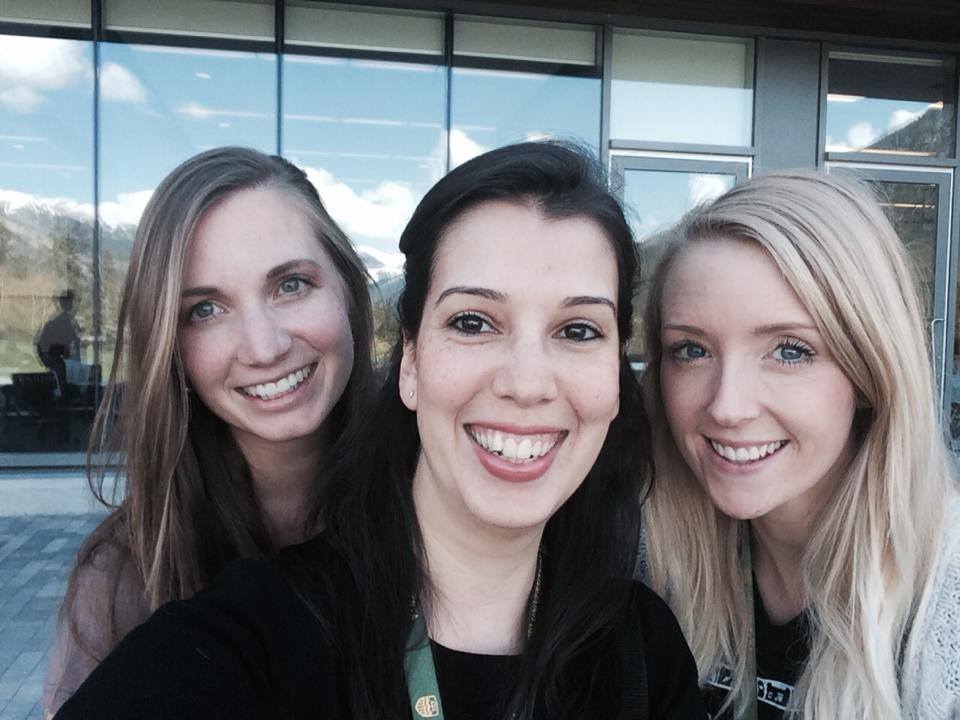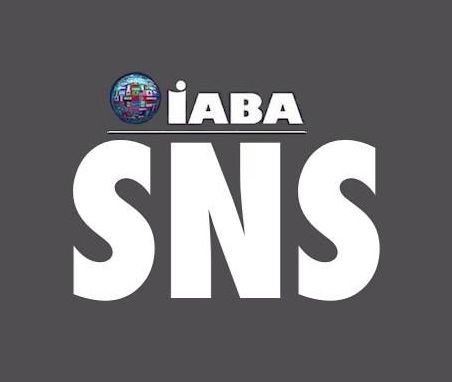Conversations
- The IABA SNS Blog
Welcome to the IABA SNS Network: A Conversation About Connecting New Scholars.

(left to right) Maria, Orly, & Emma
Hi,
we’re Maria, Orly and Emma. We wanted to introduce ourselves and let you know a bit about why we thought it was important to start this network for new scholars and graduate students (or postgraduates, depending on where you live!).
EMMA:
The three of us met in Banff at the
2014 IABA World Conference, so maybe we could chat a bit about the significance of that conference in forming this network.
ORLY:
Sure, IABA 2014 was a gathering of scholars and practitioners across fields and locations, and it was one of those rare events where young academics could witness new questions, methodologies, and ethical concerns organically emerging from scholarship and threaded into novel approaches and discussions.
MARIA:
In Banff, I recognised that life writing’s questions are expansive and its interlocutors innovative, and that there’s room for me. I say this because though I developed an early interest in oral history, my primary work doesn’t fit with what auto/biography studies, as a field, might consider its wheelhouse. This summer, however, I saw people consider relationships between data collection and life representation, writing and suicide, ethics and social justice, and a number of other connections that broadened my understanding of the life writing community.
EMMA:
Yeah, this field seems to attract a really diverse range of dynamic scholars, and the climate for intellectual engagement is extremely vibrant, and this was so evident in Banff. Many academics working in life narrative studies are encouraging of new ideas, critical thought, and the pushing of boundaries. It’s an exciting intellectual space to work in.
Auto/biography Studies
MARIA:
Following Banff, this network pushes us to consider why life writing is a productive fellowship for us. So many projects--creative, political, relating to historical or current events—that have compelled me to grow as a thinker and community member have engaged personal experience. And when, as a fledgling grad student, I discovered that there was a group of scholars asking questions about this pattern, I wanted to join them.
EMMA:
I’m particularly interested in digital modes of self-representation, and I think that this field is producing incredibly useful and provocative ways of understanding online modes of inscription, representation, and sociality. And there are researchers from many different areas who are touching on auto/biography theory as a way to understand a whole range of life narrative practices.
ORLY:
I agree with you both. For me, life writing requires a constant re-consideration of literature’s role in cultural production, and the ways texts not only represent, but serve to imagine and envision our realities. I think that for many of us involved in this field, this is the space where theory and the everyday are interlaced, where issues of representation and experience mashup. More so, as a discourse set at the meeting point of varied fields, auto/biography studies is a unique position to shape emerging scholarly discussions.
The IABA SNS (Student and New Scholar Network).
MARIA:
In founding this network, what kind of community do we envision?
EMMA:
One where conversations happen and relationships begin.
ORLY:
Absolutely, this space is a network, rather than an association; the three of us just started a discussion
which everyone is welcome to join.
“I envision this space as a unique opportunity to foster a non-hierarchical and collaborative network for emerging scholars and practitioners in life writing—to host new projects, promote interdisciplinary dialogues, interlace academic research and activism, and nurture new members of scholarly and artistic communities.”
MARIA:
I imagine it to be a space where people who hope to participate in life writing discourse can work to establish their voices in the field.
SNS Projects
EMMA: Yep, I agree that an important role that this network plays is to enable us to make meaningful contributions to the field. And we have some exciting projects and approaches designed make this happen.
MARIA:
First, there’s
Public Dialogues,
our original interview series.
Public Dialogues will feature interviews with researchers and practitioners. In its strong embrace of what is personal and political, life writing serves as a discursive space through which otherwise disparate projects encounter and engage one another. The interview genre is inherently collaborative and accessible and thus a primary method for producing these encounters.
ORLY:
Also, we were looking for a way to continue our intellectual and professional discussions in regional and world IABA conferences, so we decided to host parallel roundtables at chapter conferences. Blog posts on our website will summarise and discuss each roundtable, allowing us to connect both locally and globally among the broader life writing community .
I hope that these roundtables will later develop to collaborative writing workshops which will produce original scholarship that carefully re-shapes our field.
EMMA:
The SNS blog,
The Conversation, has so much potential! In addition to regular news and updates from us, we’d also like to invite grad students and new scholars to publish guest posts as a way of participating in the discussion and contributing to the field. You can find the guidelines for submission
here.
MARIA: The website is a key interface, but we also have a
Facebook page and
Twitter account for greater social engagement and sharing CFPs, publications, and community news.
Anything else to add?
ORLY:
Well, at such a pivotal moment when graduate training and the academic profession are clearly being transformed, I think it is crucial for us to have a space where we can reflect on current trends, and consider novel pathways for our scholarship and career visions—to take action and be part of this process that, in effect, is shaping our own futures.
EMMA: Yeah, I think of it as a tool that new scholars can use to make themselves part of the conversation
happening within the broader community of auto/biography scholarship and practice.
It works to:
- create opportunities for career profile development (such as fostering publication opportunities and hosting conference events),
- create opportunities for networking (via social media and meet-up events),
- and it will also offer original content (such as blog posts, commentary and the interview series).
MARIA:
Like the digital paths along which our voices converge, life writing’s questions proliferate, merge, and greet us at unexpected moments in our lives. I’m excited that SNS will help facilitate these connections.
Welcome to the SNS Network.
Emma Maguire is a PhD Candidate at Flinders University of South Australia. She researches automedia, digital life narrative, and girlhood.
Maria Faini is a PhD Candidate at the University of California, Berkeley. Her work focuses on US military culture, social media and digital activism, and art practice as radical sociality.
Orly Lael Netzer is a PhD student at the University of Alberta, Canada. She researches cross-cultural relations in contemporary Canadian literature.


